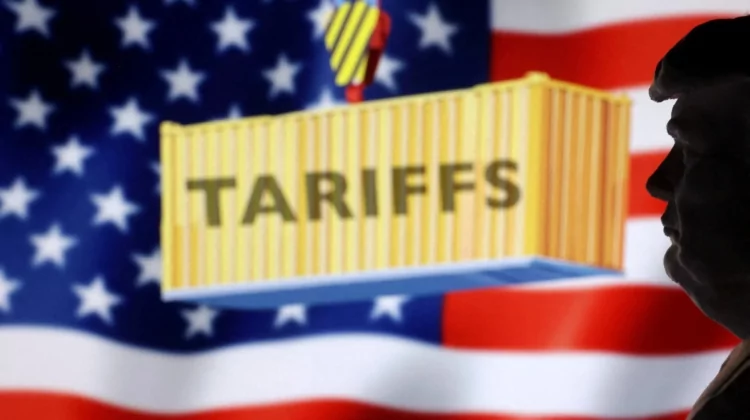Tariffs Bring Prosperity, Not Disaster
Trump is right, and his critics are wrong — again.

|
Getting your Trinity Audio player ready...
|
President Trump is working to end an injustice. After a long period of low to nonexistent tariffs on goods coming into America from foreign countries and high tariffs on American goods going elsewhere, Trump is trying to reverse the imbalance. Leftists are, of course, screaming that the president is driving the country straight over a cliff into poverty and ruin, but the fact must be borne in mind that if he had lowered tariffs to levels below what they were when he took office, they would be touting the benefits of high tariffs. What they don’t want you to know, of course, is that throughout American history, tariffs have been an engine of prosperity.
Rating America’s Presidents makes it clear: this goes back to the very beginning. President George Washington imposed high tariffs to enable nascent American industries to grow and prosper. If the Marxist left had been around the time, they would have accused him, as they’re accusing Trump now, of doing nothing but working to enrich his wealthy friends. What leftists persistently refuse to understand, and deride as “trickle-down economics,” is the fact that healthy businesses are good for everyone. They provide jobs that allow even leftists to maintain a comfortable standard of living.
White House adviser Stephen Miller explained it succinctly: “Why is that if you go to Tokyo, there’s no American cars, if you go to Berlin, there’s no American cars, but on our streets, we have every foreign car there is? They’ve blocked their markets from our cars. President Trump is saying that has to end.” If it does end, there will be more jobs in America, which will be good for everyone.
This was actually a point of contention between Republicans and Democrats for a large part of our nation’s history: should we have low tariffs, weak native industries, and more unemployment, or high tariffs, strong native industries, and less unemployment? The tariff was the big issue of the 1888 campaign, with Republican Benjamin Harrison campaigning on a pledge to protect American industries and President Grover Cleveland running for reelection on a platform that included a call for tariffs to be lowered so that Americans could obtain lower-priced, foreign-made goods.
The Democrats argued that low tariffs would mean low prices. That is biggest selling point for low tariffs, but that benefit comes at a higher, different kind of cost: the cheaper prices mean that more Americans are unemployed. Even worse, the low-priced foreign goods today are often made by modern-day slaves in places such as China and the lithium mines of the Democratic Republic of the Congo. But the slavery takes place at a great distance from the U.S., far out of sight, enabling leftists to sip their lattes in good conscience.
High tariffs have also long been a target of leftists’ class warfare rhetoric. In his first inaugural address on March 4, 1913, one of the first hard-leftists to occupy the White House, Woodrow Wilson, decried a list of “the things that ought to be altered,” including “a tariff which cuts us off from our proper part in the commerce of the world, violates the just principles of taxation, and makes the Government a facile instrument in the hand of private interests.”
Wilson thus made clear that he meant to work against the “private interests” that were the engine of the American economy, the business owners who provided jobs for ordinary Americans. The Revenue Act of 1913 lowered import tariff rates and reinstituted a federal income tax, which had been declared unconstitutional in 1895; the Sixteenth Amendment to the Constitution, ratified a month before Wilson took office, declared such taxes acceptable. By the time Wilson left office, the economy was mired in a recession.
Wilson lowered tariffs and began collecting income taxes based in part on his internationalist vision, in service to the idea of allowing America to play its “proper part in the commerce of the world,” which in practice would mean making foreign-made products cheaper and more plentiful in the United States, providing a short-term benefit to American consumers while undermining the industries on which they depended for their livelihood.
As always for “progressives,” Wilson couched this in the language of concern for the common man, posing as his savior from rapacious capitalist robber barons, as many other leftists would do after him. Woodrow Wilson merits the title of the first internationalist president, who put the interests of the world ahead of the interests of his country. As Trump might put it, Wilson was president of the world more than he was president of the United States. Consequently, his presidency was an unmitigated disaster for the country he had been elected to govern.
Now the left is playing the same game Wilson played. Their arguments don’t ring any truer now than they did a century ago. Trump is wise to attempt this; if he succeeds, an unprecedented period of prosperity will likely ensue. If Democrats manage to stop him, America’s managed decline will resume.

